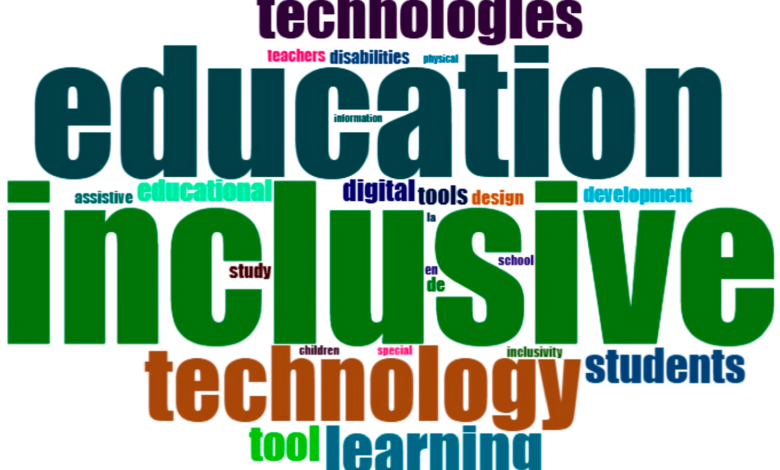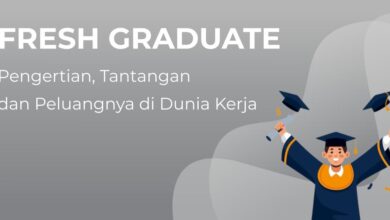Inclusive Virtual Learning: Adaptive E-Learning Solutions for Students with Special Needs in Indonesia

In Indonesia’s diverse educational landscape, students with special needs often face significant barriers to quality education. Traditional classrooms may not accommodate various learning disabilities, physical challenges, or neurodevelopmental conditions. However, the emergence of adaptive e-learning technologies offers promising solutions to bridge this gap. These innovative platforms can transform how students with special needs access education, providing personalized learning experiences that adapt to individual requirements and learning styles.
This article explores how adaptive e-learning is revolutionizing inclusive education in Indonesia, showcasing successful implementations and providing actionable guidance for educators and policymakers committed to educational equity.
Challenges Faced by Students with Special Needs in Indonesia

Indonesia’s education system serves over 60 million students across more than 17,000 islands, creating unique challenges for inclusive education. Students with special needs face multiple barriers that limit their educational opportunities:
- Limited physical accessibility in school buildings and classrooms
- Shortage of trained special education teachers, particularly in rural areas
- Inadequate learning materials adapted for different disabilities
- Stigma and misconceptions about disabilities in some communities
- Geographical barriers on remote islands limiting access to specialized services
- Standardized curriculum that doesn’t accommodate diverse learning needs
According to Indonesia’s Ministry of Education and Culture, only about 18% of children with disabilities have access to quality education. This significant gap highlights the urgent need for innovative solutions that can reach students regardless of their location or specific needs.
“The greatest challenge in Indonesian special education isn’t just about physical access to schools—it’s about creating learning environments that truly adapt to each student’s unique abilities and needs.”
Dr. Siti Aminah, Special Education Researcher, University of Indonesia
Understanding Adaptive E-Learning for Special Needs

Adaptive e-learning represents a significant advancement in educational technology, offering personalized learning experiences that adjust to individual student needs, preferences, and abilities. Unlike traditional one-size-fits-all approaches, these systems use sophisticated algorithms and artificial intelligence to create customized learning pathways.
Key Features of Adaptive E-Learning Systems
Customizable Interfaces
Adjustable text size, contrast settings, color schemes, and layout options that accommodate visual, cognitive, and physical disabilities.
Assistive Technologies
Integration with screen readers, voice recognition, alternative input devices, and text-to-speech functionality for diverse accessibility needs.
AI-Driven Personalization
Machine learning algorithms that analyze learning patterns and automatically adjust content difficulty, pace, and presentation format.
How Adaptive E-Learning Benefits Students with Special Needs
Benefits
- Personalized learning paths based on individual abilities and progress
- Reduced stigma through private, self-paced learning environments
- Immediate feedback and adaptive assessment methods
- Multimodal content presentation (visual, auditory, tactile)
- Flexibility in learning times and locations
- Detailed progress tracking for students, parents, and teachers
Challenges
- Digital divide and internet connectivity issues in remote areas
- Initial implementation costs and technical infrastructure requirements
- Need for teacher training and ongoing technical support
- Cultural adaptation of content to Indonesian context
- Balancing technology with human interaction and support
Essential Technologies in Adaptive E-Learning

Adaptive e-learning platforms leverage various technologies to create accessible and personalized learning experiences. These technologies work together to address different types of disabilities and learning needs:
Assistive Technologies for Different Disabilities
| Disability Type | Adaptive Technologies | Learning Benefits |
| Visual Impairments | Screen readers, braille displays, audio descriptions, high-contrast modes | Access to text-based content, navigation assistance, visual content alternatives |
| Hearing Impairments | Closed captioning, sign language videos, visual alerts, transcripts | Equal access to audio content, visual learning reinforcement |
| Physical Disabilities | Alternative keyboards, eye-tracking, voice recognition, switch devices | Independent navigation, content interaction without fine motor skills |
| Learning Disabilities | Text-to-speech, simplified interfaces, reading guides, concept mapping tools | Reduced cognitive load, multi-sensory learning approaches |
| Autism Spectrum | Predictable interfaces, visual schedules, sensory adjustments, social stories | Reduced anxiety, clear expectations, sensory accommodation |
Popular Adaptive E-Learning Platforms in Indonesia

Moodle Accessibility Toolkit
An open-source platform widely adopted by Indonesian universities with robust accessibility features including screen reader compatibility, keyboard navigation, and text alternatives.

Google Classroom Adaptations
Customized implementations of Google Classroom with additional accessibility plugins specifically designed for Indonesian educational contexts and curriculum requirements.

Rumah Belajar Adaptive
Indonesia’s national e-learning platform with recently enhanced accessibility features, including content in multiple formats and AI-driven personalization for diverse learning needs.
Success Stories: Adaptive E-Learning Implementation in Indonesia

Several Indonesian educational institutions have successfully implemented adaptive e-learning solutions, demonstrating significant improvements in learning outcomes for students with special needs. These case studies provide valuable insights and inspiration for others looking to adopt similar approaches.
Case Study 1: SLB Negeri 1 Jakarta

SLB Negeri 1 Jakarta, a public special education school, implemented a comprehensive adaptive e-learning program for students with various disabilities. The school faced challenges with diverse student needs and limited specialized teaching resources.
- Implementation: Customized tablets with specialized software for different disabilities, teacher training program, and parent involvement component
- Technologies Used: Text-to-speech software, alternative input devices, and AI-driven content adaptation
- Results: 68% improvement in student engagement, 42% increase in assignment completion rates, and positive feedback from parents
“The adaptive e-learning program has transformed how our students engage with learning materials. We’re seeing children who previously struggled to participate now actively involved in their education.”
Budi Santoso, Principal, SLB Negeri 1 Jakarta
Case Study 2: Universitas Terbuka’s Inclusive Distance Learning

Universitas Terbuka, Indonesia’s open university, developed an inclusive distance learning platform to serve students with disabilities across the archipelago, addressing geographical barriers and accessibility challenges.
- Implementation: Comprehensive accessibility audit, content redesign, and development of multi-modal learning materials
- Technologies Used: WCAG 2.1 compliant platform, adaptive assessment tools, and personalized learning paths
- Results: 156% increase in enrollment of students with disabilities, 89% course completion rate, and improved academic performance
Case Study 3: Yayasan Sayap Ibu Adaptive Learning Program

Yayasan Sayap Ibu, a foundation supporting children with developmental disabilities, implemented an adaptive learning program focused on early intervention and foundational skills development.
- Implementation: Gamified learning applications, progress tracking system, and caregiver training component
- Technologies Used: Touch-responsive applications, visual communication systems, and adaptive difficulty progression
- Results: Significant improvements in communication skills, cognitive development, and school readiness
Actionable Steps for Implementing Adaptive E-Learning

For educators and policymakers looking to implement adaptive e-learning solutions for students with special needs, the following structured approach can help ensure successful outcomes:
- Conduct a Needs AssessmentIdentify the specific disabilities and learning needs present in your student population. Involve special education teachers, parents, and when possible, the students themselves in this process.
- Evaluate Existing InfrastructureAssess current technology infrastructure, internet connectivity, device availability, and technical support capabilities to identify gaps and requirements.
- Select Appropriate TechnologiesChoose adaptive e-learning platforms and assistive technologies that best address the identified needs while considering budget constraints and local context.
- Develop Implementation PlanCreate a phased implementation strategy with clear timelines, responsibilities, and success metrics. Include contingency plans for technical issues.
- Provide Comprehensive TrainingEnsure teachers, support staff, parents, and students receive adequate training on using the selected technologies effectively.
- Monitor and EvaluateEstablish ongoing monitoring systems to track student progress, technology effectiveness, and implementation challenges.
- Iterate and ImproveUse evaluation data to continuously refine the approach, addressing emerging needs and incorporating new technologies as appropriate.
Funding and Resource Considerations
Implementing adaptive e-learning requires financial investment and resource allocation. Consider these potential funding sources and cost-effective approaches:
- Government grants through the Ministry of Education and Culture’s inclusive education initiatives
- Corporate social responsibility programs from technology companies operating in Indonesia
- International development organizations focused on educational equity
- Public-private partnerships with educational technology providers
- Open-source solutions and community-supported development to reduce licensing costs
- Phased implementation approach to distribute costs over multiple budget cycles
Evaluating E-Learning Inclusivity: A Comprehensive Checklist

When selecting or developing adaptive e-learning solutions for students with special needs, use this checklist to evaluate platform inclusivity and accessibility:
E-Learning Inclusivity Evaluation Checklist
- Content Accessibility
- Text alternatives provided for all non-text content
- Captions and transcripts available for audio/video content
- Content structured with proper headings and reading order
- Color not used as the only means of conveying information
- Content available in multiple formats (text, audio, visual)
- Interface Usability
- All functionality operable through keyboard alone
- Sufficient time provided for users to read and use content
- No content that flashes more than three times per second
- Clear navigation mechanisms to help users find content
- Predictable and consistent interface behavior
- Adaptive Capabilities
- Content difficulty adjusts based on student performance
- Multiple presentation options for different learning styles
- Customizable interface settings (text size, contrast, etc.)
- Alternative input methods supported
- Progress tracking and personalized feedback mechanisms
- Cultural Relevance
- Content reflects Indonesian cultural context
- Language options include Bahasa Indonesia and local languages
- Examples and scenarios relevant to Indonesian students
- Content free from cultural biases or stereotypes
- Technical Considerations
- Functions with limited bandwidth and intermittent connectivity
- Compatible with older devices and operating systems
- Offline functionality for areas with limited internet access
- Low data consumption options available
- Compatible with commonly used assistive technologies
Policy Recommendations for Inclusive Digital Education

To create a supportive environment for adaptive e-learning implementation across Indonesia, policymakers should consider the following recommendations:
National Level Policies
- Develop national standards for digital accessibility in educational platforms
- Allocate dedicated funding for adaptive e-learning technologies in education budgets
- Create certification programs for accessible e-learning platforms
- Incorporate digital accessibility requirements into procurement processes
- Establish monitoring mechanisms to ensure compliance with accessibility standards
Local Implementation Strategies
- Develop regional resource centers for adaptive technology support and training
- Create local communities of practice for knowledge sharing among educators
- Implement pilot programs with detailed evaluation to guide wider adoption
- Establish partnerships with local technology providers for customized solutions
- Develop context-specific guidelines that address unique regional challenges
“Policy frameworks must evolve beyond simply mandating inclusion to actively facilitating it through technology. We need comprehensive approaches that address infrastructure, training, content development, and ongoing support.”
Dr. Bambang Wibowo, Education Policy Advisor, Ministry of Education and Culture
Future Trends in Adaptive E-Learning for Special Needs

The field of adaptive e-learning for special needs education continues to evolve rapidly. Several emerging trends show particular promise for the Indonesian context:
Emerging Technologies and Approaches
Artificial Intelligence and Machine Learning
Advanced AI systems that can predict learning difficulties, recommend interventions, and continuously optimize learning paths based on detailed student data analysis.
Accessible Virtual and Augmented Reality
Immersive learning environments with built-in accessibility features that provide experiential learning opportunities for students with various disabilities.
Brain-Computer Interfaces
Emerging technologies that allow direct brain-to-computer communication, potentially revolutionizing access for students with severe physical disabilities.
These technologies hold tremendous potential, but their successful implementation in Indonesia will require thoughtful adaptation to local contexts, infrastructure development, and ongoing research to ensure they effectively meet the needs of students with disabilities.
Conclusion: Building an Inclusive Digital Education Future
Adaptive e-learning represents a powerful opportunity to transform education for students with special needs in Indonesia. By leveraging technology to create personalized, accessible learning experiences, we can help ensure that all students have the opportunity to develop their full potential, regardless of their disabilities or geographical location.
The journey toward fully inclusive digital education requires collaboration among educators, policymakers, technology developers, parents, and students themselves. While challenges remain—particularly around infrastructure, funding, and training—the successful case studies highlighted in this article demonstrate that meaningful progress is possible with commitment and strategic implementation.
As we look to the future, continued innovation in adaptive technologies promises even greater possibilities for inclusive education. By taking action today to implement and improve adaptive e-learning solutions, Indonesian educational institutions can lead the way in creating truly inclusive learning environments that serve all students effectively.
“The measure of our educational system’s success is not how well it serves the majority, but how effectively it includes those at the margins. Adaptive e-learning gives us the tools to finally fulfill the promise of education for all.”
Prof. Dewi Suryani, Inclusive Education Advocate
Request a Personalized Consultation
Interested in implementing adaptive e-learning solutions for students with special needs at your institution? Our team of specialists can provide personalized guidance tailored to your specific context and requirements.Full NameInstitution NameEmail AddressPhone NumberSpecific Areas of InterestRequest Consultation
By submitting this form, you agree to be contacted about adaptive e-learning solutions. We respect your privacy and will not share your information with third parties.
Get Your Free Inclusive Education Resource Guide
Download our comprehensive guide to understanding the challenges and opportunities in providing quality education for students with special needs in Indonesia.Download Free Guide
Join Our Free Webinar
Register for our upcoming webinar on “Implementing Adaptive E-Learning for Special Needs Students in Indonesian Schools” featuring experts in inclusive education technology.Register Now
Download Our E-Learning Inclusivity Checklist
Get our comprehensive checklist for evaluating the inclusivity of e-learning platforms for students with special needs in Indonesian educational contexts.Download Checklist
Join Our Inclusive Education Community
Connect with other educators, administrators, and technology specialists committed to improving education for students with special needs in Indonesia.Join Community
- situs toto
- DINARTOGEL
- WAYANTOGEL
- DISINITOTO
- SUZUYATOGEL
- PINJAM100
- SUZUYATOGEL DAFTAR
- DEWETOTO
- GEDETOGEL
- slot gacor
- Paito hk lotto
- HondaGG
- PINJAM100
- DINARTOGEL
- DINARTOGEL
- PINJAM100
- PINJAM100
- PINJAM100
- PINJAM100
- PINJAM100
- HondaGG
- DWITOGEL
- bandar togel online
- situs bandar toto
- daftarpinjam100
- loginpinjam100
- linkpinjam100
- slotpinjam100
- pinjam100home
- pinjam100slot
- pinjam100alternatif
- pinjam100daftar
- pinjam100login
- pinjam100link
- MAELTOTO
- DINARTOGEL
- DINARTOGEL
- slot gacor
- DINARTOGEL
- DINARTOGEL
- DINARTOGEL
- DINARTOGEL
- DINARTOGEL
- DINARTOGEL
- TOTO171
- TOTO171
- TOTO171
- TOTO171
- TOTO171
- TOTO171
- TOTO171
- gedetogel
- TOTO171
- slot gacor
- bandar togel toto online
- link slot gacor
- situs slot gacor
- rtp slot gacor
- slot77
- PINJAM100
- PINJAM100
- gedetogel
- gedetogel
- gedetogel
- gedetogel
- gedetogel
- toto online
- bandotgg
- bandotgg
- bandotgg
- bandotgg
- bandotgg
- bandotgg
- bandotgg
- bandotgg
- bandotgg
- bandotgg
- bandotgg
- bandotgg
- bandotgg
- bandotgg
- slot pulsa
- slot
- rtp slot
- bandar togel online
- bandotgg
- gedetogel
- gedetogel
- hondagg
- slot
- slot77
- bandotgg
- bosgg
- togel online
- bandar toto online
- toto online
- slot gacor
- toto gacor
- slot online
- togel toto
- slot gacor toto
- slot
- slot
- dwitogel
- togel
- apintoto
- bandotgg
- Kpkgg slot
- nikitogel
- Slot gacor
- SLOT777
- slot gacor
- Slot gacor
- slot
- bandotgg
- dinartogel
- DINARTOGEL
- DISINITOTO
- bandotgg
- slot qris
- slot gacor
- rtp slot
- slot gacor
- slot toto
- slot88
- gedetogel
- slot4d
- slot777
- slot gacor
- bandotgg
- nikitogel
- nikitogel
- TOTO171
- WAYANTOGEL
- superligatoto
- superligatoto
- bandotgg
- slot toto
- slot toto
- ciputratoto
- dwitogel
- disinitoto
- dinartogel
- wayantogel
- toto171
- bandotgg
- depo 5k
- angka keramat
- prediksi togel
- prediksi sdy
- prediksi sgp
- prediksi hk
- togel4d
- bandotgg
- bandotgg
- ciputratoto
- ciputratoto
- slot gacor
- dewetoto
- dewetoto
- RUPIAHGG
- bandotgg
- dinartogel
- superligatoto
- ciputratoto
- slot77
- slot77
- depo 10k
- slot pulsa
- doragg
- DORAGG
- doragg
- slot gacor 2026
- doragg
➡️ Baca Juga: KPK Tangkap Tangan Pejabat Daerah Terkait Proyek Fiktif
➡️ Baca Juga: Panduan Cara Memulai Bisnis Online Halal




